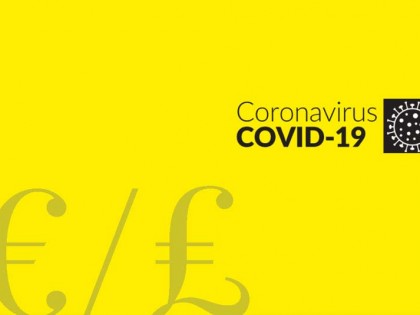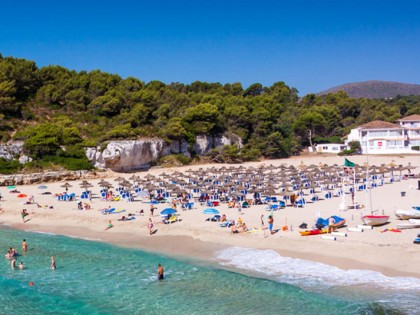Summer is here and booking a holiday has never been easier! Gone are the days of sitting in line at the local travel agency to secure not online your holiday villa but also plane tickets and inclusive deals. Thanks to the rise of the internet, endless possibilities are now available to travellers at the click of a button.
Sounds great, doesn’t it? But what if the friendly voice at the other end of the line is not who they say they are? You’ve seen it on the news, and maybe even know someone who was scammed by a clever copycat – these career fraudsters know what they are doing, so it’s important that you do as well!
Below we’ll be looking at the telltale signs that can help you separate the genuine hosts from the phonies!
Back to School
This might sound redundant but if you have ever read through a junk email claiming that “they have a million dollars to wire transfer immediately”, you’ll recognise the telltale signs of broken English. Almost all travel agencies targeting the British (or any) market will have a member of staff who is fluent in their target market’s language, so a lack of grammatical correction is either down to them not actually being genuine, or just poor attention to detail.
Verbal tenses, missing words and improper use of singular/plural should definitely make you question the authenticity of the company.
An Offer You can’t Refuse
We all love an offer, and only the most self-controlled of us can resist going for it when we see, in our eyes, a bargain. Fraudsters know this, and will pepper their fake websites with ludacris deals from things like “-%70 LAST MINUTE DEAL”, “PAY IN FULL FOR HUGE DISCOUNT” and anything else that will make you think you’re getting the best deal on your holiday.
Unfortunately, probably ten times out of ten, these deals are absolutely fake. If the house looks great, it’s available in the middle of the season and there’s “nothing out of the ordinary”, then ask yourself this: why hasn’t someone else snapped this up?
Your Reputation Precedes You
Word of mouth is king. Nothing will net you more new and return customers than good product, great service and a well-kept public image. It’s essential to research the company that you’re going to trust with not only your money, but also your time. Booking with someone who has adverts on TV, or you’ve seen in magazines, or the side of the bus? Then you can breathe easy. But if you’re renting from someone based at your destination of choice, how do you know they are for real?
A good barometer for a company’s reputation is the user reviews left by genuine customers. Any company looking to be visible (fraudsters do not want this!) will most likely have a Google Business page and Google Maps marker, properties on TripAdvisor, Balearic Villas, AirBnb, HomeAway or a variety of other alternatives, but the one common thread here is presence. Obviously companies can fake or even purchase feedback, so, once again, be skeptical.
Google is our friend here: search the web for references, check their phone numbers… You can even scout their office using Google Street View.
Research, research, research
In the same way you should be scrutinising the agencies public face (website, reviews, etc..( you should also check out the property you wish to rent. Most likely the agency will provide a map marker or the general location of the property (tip: some “general” markers are centred on the actual location of the property, so just zoom in) which you can check to see if it matches the photos provided.
More importantly – reverse image search! This is a built in feature on the Google Chrome browser and can also be done manually through search engines. If you have no results or just results leading back to the website you’re looking at, then the house could be “exclusive”, but more often than not, multiple agencies will be advertising the same property at which point you can cross reference photos, description, the location, pricing and most importantly, availability, as the scammer might be trying to sell you dates which aren’t even available!
In the same way, we must look at the photographs in the ad, because although sometimes the apartment will be better than the images, in others will have distorted reality. For it, the ideal thing would be to be able to visit the apartment that you want to rent. If this is not possible, try to get more photos by asking the landlord and if you have the location, check with Google Maps if the photos match the environment. Thus, if in the photographs it appears that it has views of the sea but from Google Maps the only views the apartment has is to the building across the street, it is a sign that we could be in front of a scam.
Time to Talk
At some point or another, a phone call is going to take place. You might want more information or even better (for the fraudster), you might want to make a booking. Rental companies should definitely have a landline, as making foreign calls on a mobile phone is a big expense – a property manager might have their mobile phone listed, but often a genuine property manager will be searchable through Google and have a real online presence.
If you are only communicating through a telephone then this is a big red flag. Alongside the exchange of money, there also needs to be a rental contract, and, by law, the rental agency is obliged to request a copy of your passport identification (a precaution taken by the Guardia Civil for national security), and the latter two items require an email address. There have even been cases of entire transactions taking place over messaging applications such as Telegram or WhatsApp, without any verbal communication.
If the person your in contact with doesn’t want to talk on the phone, is “always busy” or is just unreachable, this is definitely not a person you should be trusting with your summer holidays.
How to Pay
Always, always, always check that the company has the option to pay by credit card – any registered company will have this option available as credit cards payments are much faster than bank transfers and they are much safer too.
Scammers will insist that payment be made by bank transfer, and will even threaten to charge you extra if you pay by credit card… With credit cards, payments can be backtracked. Once a bank transfer is made, it’s a lot more complicated to backtrack, especially when the recipient’s account has had all amounts withdrawn and the account has been closed, which is the regular mode of operation used by holiday rental fraudsters.
So, whilst new technologies have made it easier for scammers to operate, it has also empowered the consumer to protect themselves and catch the fakers red handed. As will all innovations, it’s important to know what you’re dealing with and how to protect yourself, and your hard earned holiday!
if you need legal help we are at your availability

























































